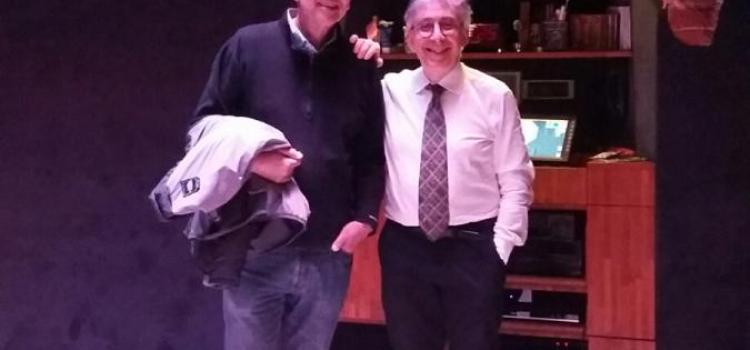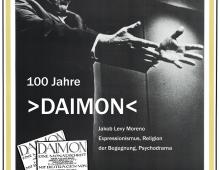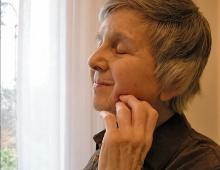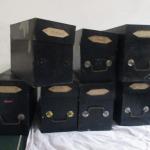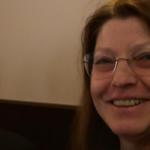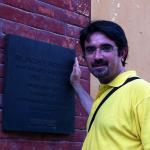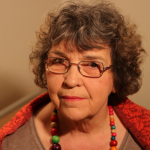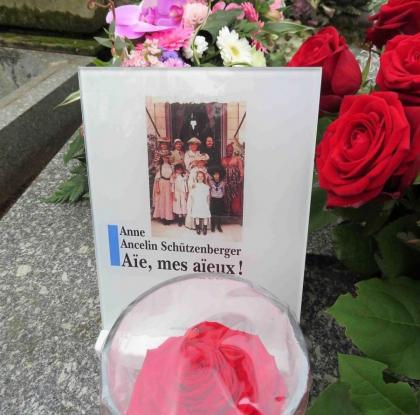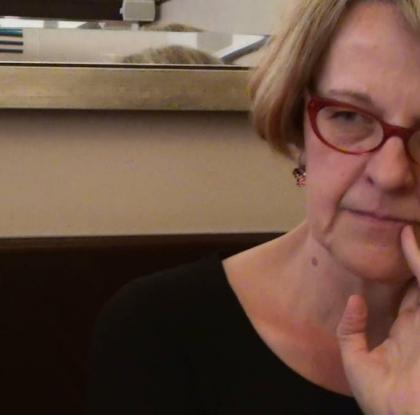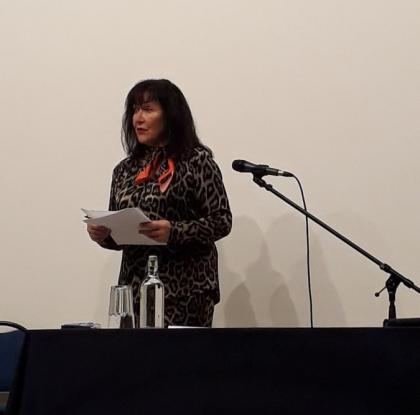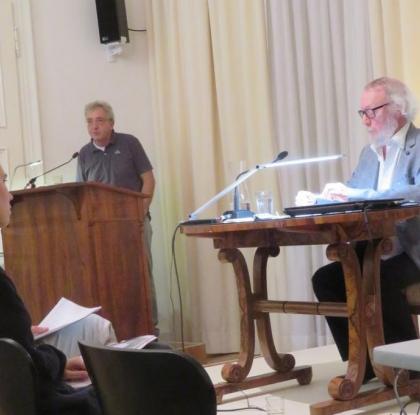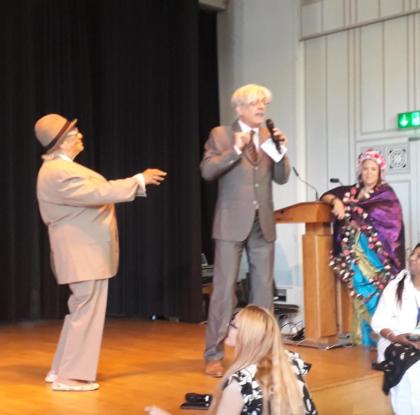An Interview to Marcelo Pakman
An Interview to Marcelo Pakman
We have met doctor Marcelo Pakman in his last trip to Italy and we have asked him some questions.
Dr. Pakman, it is little weired to see you as a guest of the Annual Meeting of AiPsiM (Morenian Psychodramatists Italian Association – www.aipsim.it) You are a well known psychiatrist and psychotherapist who has chosen other approaches than Moreno’s methods. How do you feel in these shoes?
I often take part of meetings where you don’t completely fit in. I am not , as a fact, a psychodramatist.
The reason of this invitation from AiPsiM, is a constructive debate among people who do not have the same background. We cannot give all for granted: we can only share each others’ ideas, beyond our own field and overcome our clichés that come from our belonging.
You have had a huge interest in Freud and his work. You have also had a big interest in Moreno. How do you consider your interest to both of them?
I have been attracted to both Freud and Moreno not only for their ideas, but also for their cultural impact: both of them have been active in near times, both of them with Jewish roots but with a different approach to Illuminism.
The Freud’s “inconscious” is a kind of “scandal” for the illuminists. There is a sentence that he used as a title for many of his works that says: “Where there was the ‘Id’, there will be the ‘Ego’.
Considering that specific ethic context , there have been two different interpretations.
In the United States, influenced by the protestant ethic, the interpretation was rational: the ‘Id’, the inconscious, the impulsive, needs to be replaced by the ‘Ego’, and the ways to do it, to guide the unconscious, are the interpretations of the various concepts on childhood and developmental process
In the catholic France and among “les poètes maudit”, that are in contrast with each other, being the poets the bad side of the catholic France; there has been a different interpretation, only partially rationalist. Lacan was an exception as he considered himself the only real follower of Freud.
The ‘Id’ doesn’t need to be replaced by the ‘Ego’, the ‘Ego’ develops itself inside the unconscious, that is hard to subdue.
In both these two interpretations, the word, the “ermeneutica” are very important, as the talmudic root (orthodox) of Freudian judaism.
With Moreno, something different happens: in his works the main jewish root is not the talmudic, but the chassidic and cabalist one. Moreno tries to take out all the elements that for Freud are inside the unconscious, and puts it on the stage, he make it “theatre”, in accordance with the cabbala approach: all the world is a theatre, it is the theatre of God.
Psychoanalysis and Psychodrama are in constant tension on these two roots: the interpretative “ermeneutica” and the theatrical hermeticism…
Hermeticism makes a little use of the word because it doesn’t want be trapped in it. It looks for a wider dimension: the meaning.
On one side, Freud wants to interpret dreams, and puts as title of his book “The Interpretation of Dreams” and not “The Dreams”; on the other side, Moreno wants to get inside the dreams, inside the scene. He doesn’t want to embody them, because to do so it would be partially an abstraction.
Moreno looks for another dimension, a sort of “bodyhood”, because all the world is corporated and not incorporated. The world has already a sense and does not necessarily need to also have a meaning.
Freud looks for the corporal absence, goes back and forth between free association and fluctuant attention. He gets in and out the unconscious, like Orfeo does.
Moreno, on the other way, make the sense embody the dramatic scene, and stay there.
These are two different ways to speak and interpret the world.
As the psychodramatist Ivan Togni has put in evidence, staying on the psychodramatic stage means deciding to stay with your body, sometimes even without your head, without your meanings and without a plot. It means to choose to be there to act; and it is challenging to avoid the mere repetition of the past and any sort of corrective or risolutive intention.
What is in the context, the psychodrama director’s responsability?
The biggest responsability, as for all of us, is the one in the medical field : “First of all, don’t hurt”.
With experience you learn that you cannot always know exactly where you are going, but you still always need to understand that some directions are not good.
The small community that comes out during therapeutic act, psychodramatic or not, can be referred to the concept, by the philosopher Jean-Luc Nancy, as an “inoperative community”. It is not the result of a production, be it social, economic or even political production; it is not the result of stereotyped and calculated meanings.
From a therapeutic session comes out a community around an appearing singularity, which is something that cannot be put inside a structure or inside a cliché.
What is this singularity for psychodramatists? It is a scene, but the world itself is a scene that has stereotypes and singularities, because, as the cabbala said, the world has not been created once for ever, but it has been created moment by moment.
The psychodramatist’s responsability is linked to how much we are able to stay inside this constant pact of the creation of the world, trough the scene, that is a singularity.
When the scene emerges we are inside this creation, but we are also outside it, we are off center and this makes our work very difficult. To be good professionals we need to own and use instruments, but at the same time we don’t need to get completely trapped by these techné which bring with them a ready made vision of the world, of how things need to be done.
When the scene starts, the psychodramatist gets the risk: he is in a particular situation where not all what he thinks or does is determined by what he has studied in this subject. This is the artistic aspect of our profession: you cannot teach trough definitions and meanings, but you can create the conditions and the… so that singularities will emerge. They always keep us apart from clicheés , from all our habits and tradition that help us at the same time dominate us. --------------------------------------------------
Marcelo Pakman (Buenos Aires, January 1st, 1953) studied Medicine and specialized in Psychiatry. He has written several books on his critical theory concerning some mainstream currents in psychotherapy. He has been the vice-president of the American Family Therapy Academy and the American Society for Cybernetics. He has taught at the Polytechnic Institute of Hong Kong and has given lectures in more than 80 universities all around the world.
He is now living in Massachussets (New England, USA), where he works as a psychotherapist.
We thanks to him for his kind availability. Thanks to Salvatore Pace and Fabiana Arena for this interview.





